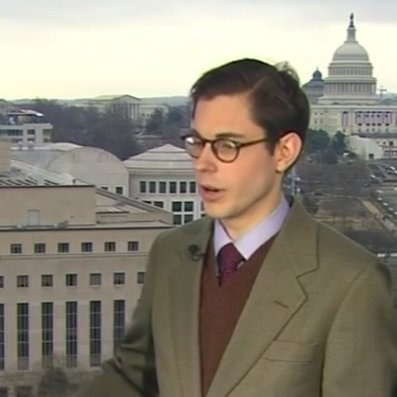
Julius Krein
@JuliusKrein
Followers
6,835
Following
11
Media
8
Statuses
940
Explore trending content on Musk Viewer
Eminem
• 216414 Tweets
River
• 199998 Tweets
Celtics
• 151644 Tweets
LeBron
• 120594 Tweets
Lakers
• 87996 Tweets
Deyverson
• 77402 Tweets
Tulsi
• 75680 Tweets
Knicks
• 74679 Tweets
Mineiro
• 67580 Tweets
John Kelly
• 65117 Tweets
Tatum
• 64374 Tweets
Gallardo
• 51042 Tweets
Nacho
• 39811 Tweets
KARIME X MONTSE Y JOE
• 38452 Tweets
Fernando Valenzuela
• 34077 Tweets
GALA X MOJOE
• 32288 Tweets
Fonseca
• 30995 Tweets
GARIME X MOJOE
• 30027 Tweets
Timberwolves
• 26374 Tweets
#RoçaAFazenda
• 22527 Tweets
The Next Prince Q13
• 22434 Tweets
Monumental
• 22402 Tweets
Luana
• 20789 Tweets
Borja
• 20424 Tweets
Mikal Bridges
• 19145 Tweets
東京メトロ
• 15244 Tweets
Mastantuono
• 13507 Tweets
Daisuke
• 13257 Tweets
Randle
• 12347 Tweets
Gobert
• 10998 Tweets
Paulo Diaz
• 10730 Tweets
Last Seen Profiles
Enjoyed being a guest on
@ezraklein
's podcast. One of his (collegial and serious) questions that I recall rambling on about but not really answering clearly is why this moment is not simply a triumph for the Left. Let me attempt a clearer answer here:
14
26
170
To ring in 2023, I wrote a long essay on ESG for
@compactmag_
. I argue that ESG is not the opposite of Reagan-era shareholder primacy but an outgrowth of it. Thus efforts to oppose ESG on the grounds of "profits over politics" are worse than useless....
10
27
101
Honored to have been invited on Hidden Forces with
@kofinas
, one of the best podcasts out there featuring highly informed interviews on finance, economics, and politics:
3
7
62
My contribution to the
@amconmag
symposium "What Is Conservatism?": conservatism is an ideology of and vehicle for self-marginalization; hastening its inevitable demise is a precondition of accomplishing anything significant in formal politics...
7
16
56
US policy since WWII has largely taken American manufacturing dominance for granted, even though our manufacturing has struggled since the 1970s. Innovation and R&D is largely disconnected from production. CHIPS & IRA do not really address these problems, but they can be solved.
0
7
48
Anecdotally, I'm given to understand that
@AmericanAffrs
has a significant audience in China. Of course, this only confirms suspicions that Chinese elites are more serious & intelligent than their American counterparts...though more and more in the U.S. are starting to catch up.
Kinda interesting how Chinese state media picked up on that
@AmericanAffrs
essay on the "Brazilianization of the World"
4
25
109
0
5
49
Saagar Enjeti reviews Thomas Frank (and more):
Many self-described left-populists refuse to acknowledge the deep unpopularity of cultural leftism, and so their appropriation of the populist label is often at least as dubious as efforts by the neoliberal Right to don the same mantle. --
@esaagar
8
16
50
1
3
42
Relative lack of discussion on this issue is one of many indications of how fundamentally unserious American politics is....
1
5
34
I look at the oil and tobacco industries in an attempt to explain what both neoliberals and progressives get right and wrong about inflation for
@unherd
0
11
35
Glad to have been a guest on one of the most interesting—and certainly the best named—political economy podcasts:
🚨New Episode🚨
Left populism, classical Marxism, old fashioned social democracy... all are in decay. But so is conservatism. Are we due a massive political realignment?
/145/ The End of Conservatism ft.
@JuliusKrein
3
9
39
2
5
30
The failure of the conservative legal movement--which promised to defend social conservatism but structurally can only deliver for big business--is just beginning and will have profound consequences. This article outlines the contradictions that will tear it apart:
0
4
28
Good interview with
@aaron_renn
on his recent American Affairs article and GOP reactions to it:
1
4
29
Here I argue that while we imagine firms are profit-maximizing, they are primarily driven to maximize valuation, and the two are not the same. This is a problem for economic theory; and helps explain underinvestment in everything but software—and poor performance of value stocks.
2
5
29
The rising importance of the family office model, and the shift to "wealth preservation" over "wealth creation," is an underappreciated dynamic that has distorted finance and investment in recent years. This article explores it in the context of competition with the "China model"
1
7
24
In 2010, US producers controlled roughly 65% of mitomycin manufacturing and were selling doses for about $65. In 2011, Accord, an Indian manufacturer, slashed its prices to gain control of the market. In 2013–14, it raised prices from $97 to $170. By 2017, prices reached $540.
0
9
24
@hamandcheese
@gabrielwinant
@rortybomb
Here is the full (cordial or at least professional) email correspondence, which makes what he said all the more bizarre....
4
1
18
these interviews are great
@nassimtaliban
1
1
17
@annakhachiyan
@AdamLehrer
I don't plan to get into this too much since it's all so ridiculous, but he didn't really "reject" it in the way implied here. See the full email correspondence:
@hamandcheese
@gabrielwinant
@rortybomb
Here is the full (cordial or at least professional) email correspondence, which makes what he said all the more bizarre....
4
1
18
2
0
14
@hamandcheese
@gabrielwinant
@rortybomb
People should feel free to hate me all they want, but the idiotic conspiracy theories are just pathetic--as Sam notes, Scaife is in fact quite hostile to us
1
0
17
Excellent piece by
@calebwatney
outlining a number of practical approaches that realistically can be--and in some cases already are being--implemented at NASA, ARPA-H, etc....
0
6
20
American culture wars serve not as an "opiate of the masses" but rather the "bath salts of the bourgeoisie," a provocative historical analysis from Michael Cuenco:
1
1
18
Admittedly biased, but I think this is one of the most important political economy pieces of the last decade (at least). The artificial ringfencing and concentration of profits + IP rents is as significant as (and interconnected with) financialization, offshoring, inequality, etc
1
5
16
.
@AxiomAmerican
on the irony of today's culture war: American progressives are anti-Christian, yet are the spiritual inheritors of fundamentalist moralism. American conservatives gladly claim the Christian mantle, yet increasingly don’t go to church...
0
2
19
In the 1970s, Christopher Lasch wrote, "Those who recently dreamed of world power now despair of governing the city of New York." Today, those who once dreamt of ruling the nation now despair of governing Kenosha, Wisconsin...
Deregulation began as a drive to make room for the little guy but has resulted in a byzantine system of rules and regulations, ironically entrenching unaccountability. The grid is now more fragile, more expensive, and more opaque. --
@nukebarbarian
0
9
27
0
4
18
The continuing transition to a “rentership society” has not received sufficient attention...
0
3
15
Business history of this kind has sadly become almost a lost art, but articles like this offer unique insight into the causes of U.S. industrial decline--the ideological excesses and policy failures that have shaped the last few decades--and offer a way forward:
3
3
17
Joel Kotkin's article here is among the most comprehensive and damning pieces on California's recent economic and policy trajectory...
0
3
17
@hamandcheese
@gabrielwinant
@rortybomb
Sam, I actually have to correct you here: I did offer to have him write a book review (an offer he accepted), but I did not ask him to write anything specific about opposing identity politics or anything like that. Since he called me a Nazi, I will actually show the emails....
3
0
12
"All of us seem to agree that we are suffering from a profound loss of freedom, but none of us seem to believe that others are as well....the more we assert our freedom within the liberal mold, the more futile and impotent we feel...."
0
8
13
I joined
@HillTVLive
today to discuss the election and the prospects (and obstacles) facing a larger policy realignment going forward:
3
0
17
This article from Joel Kotkin defies easy excerpting, but contrary to typical media narratives, demographic and economic trends have been working in favor of the Heartland for some time--trends that are only accelerating after Covid--and this revival has national benefits.
1
3
13
@ggreenwald
@RadEmpanada
It's called trying to run an interesting publication. and I'm guessing a number of left-wing people write for it not because the like me but because they want to reach a new audience and actually accomplish something, rather than virtue signal to their underemployed grad students
1
0
13
Too few psychological/sociological studies of America's billionaires, their (self-described) motivations, group dynamics, etc.; the piece below and the book it reviews are a good start...
0
1
15
This piece was written months before coronavirus (which is now itself old news...) but touches on many of the increasingly consequential issues facing science and politics and has proved remarkably prescient:
1
3
13
@ggreenwald
@RadEmpanada
Anyone who actually knows anything about the current political scene knows that American Affairs has done more than pretty much anyone to get the right interested in critiques of financialization and deunionization and deindustrialization....
0
0
12
@hamandcheese
@gabrielwinant
@rortybomb
(and frankly one has to be pretty out of touch to think that stale foundations like Scaife are particularly interested in any ambitious intellectual projects at all in 2020 or that they are particularly influential on the right, even among "establishment" types)
1
0
10
There has been an intensification of moralism toward China recently, but relatively little effort to understand its leadership's actual sources of legitimacy, or to build up our own state and productive capacity to counter any threat from it. We should be doing the opposite...
0
2
14
This piece by
@SamuelBiagetti
on the new iconoclasm also features a fascinating critique of how concepts like "honor" and "purity" reemerge in liberalism (Mill, Rorty, Shklar) through the harm principle, and the distortions that result—hence words/statues become violence...
0
4
14
Looking forward to participating in this
@NASorg
discussion on James Burnham with
@ToryAnarchist
and
@aaron_renn
:
0
5
12
"Even the greens were once onboard with the shale boom. The Sierra Club took natural gas money for its Beyond Coal campaign. But a decade after “Beyond Coal,” the Sierra Club announced “Beyond Natural Gas..." Fascinating history from
@nukebarbarian
0
4
13
.
@RichardHanania
reviews Woke, Inc. by
@VivekGRamaswamy
0
3
13
Strong asset valuations vs. weak economic performance: in a word,
@LHSummers
, Seth Klarman, and
@pmarca
are wrong; the CCP is right!
0
3
14
The U.S. approach to funding strategic sectors has been to either let them die or throw grants at incumbents. We need a better approach. And although it gets little attention in the West, China is already experimenting with new financing mechanisms, as David Adler outlines here:
0
5
13
In this comprehensive piece,
@nukebarbarian
explains why US nuclear energy disappointed in the 20th century--from nuclear and utility industry mistakes, to regulatory failures, to an environmental movement more committed to degrowth than decarbonization...
0
6
12
In February 2019, there were 70 gigafactories in China and 5 in the United States; by 2020, there were 136 in China and 8 in the United States...of the 304 gigafactories in the pipeline for the next ten years, 226 are in China and 23 are in the United States.
Countries around the world are engaged (with varying degrees of fervor) in the complete transformation of whole industry sectors. Yet it turns out that Russia and Ukraine produce many of the key materials that the world needs to decarbonize.
@gavindjharper
0
6
8
1
4
12
This is a long and technical article, but I think one of the most important pieces that American Affairs has published...
2
2
13
1. This is hilarious.
@HeerJeet
has never spoken to me and knows nothing about my views on Leo Strauss or his students...
A new pro-Trump policy journal,
@AmericanAffrs
, is not a magazine of ideas but rather a magazine of myths.
1
4
10
1
8
11
From "bowling alone" to "scrolling alone":
0
0
13
The conventional understanding of the knowledge/tech/IP economy is deeply flawed, as Roberto Unger argues here. Paul Romer's attempt to fit it into the marginalist economic paradigm has limited its productive potential and obscured needed policy reforms.
0
1
12
My attempt to evaluate the Trump administration's economic policy legacy in 3,000 words:
Trump will leave office with a decidedly mixed record—not only with the typical wins and losses of any presidency, but also in terms of the administration’s crosscutting ideological tendencies. The GOP will have to resolve these tensions.
@JuliusKrein
:
5
1
4
3
2
11
I discuss the prospects for and obstacles to a Democratic Party "realignment," as well as Republicans' inability to put forward a positive agenda and the limitations of conservative anti-ESG efforts, etc....
1
3
11
Now free for nonsubscribers, my review of Brad DeLong and Gary Gerstle's books on neoliberalism
@ClaremontInst
: TLDR: DeLong bad, Gerstle good
1
4
10
.
@geoffrey_cain
, who recently interviewed Zelensky, with a long-form piece on Ukraine, Afghanistan, and US foreign policy here:
1
2
12
An informative survey of Israeli politics, I also think this article contains a number of insights into / parallels with U.S. politics:
0
5
11
What if, over the past 50+ years, Republicans had sought to reorient the welfare state around the family, rather than pursue the self-defeating libertarian/neoliberal quest to eliminate both? Just one of many interesting hypotheticals raised by this Michael Lind piece:
0
0
9
@hamandcheese
@gabrielwinant
@rortybomb
I obscured the book under discussion since there's no reason to draw the author into this....
0
0
7
The assumptions of conventional economics models relating to cost of capital and investment are antiquated and unscientific; these theories must be abandoned if we are to have sound economic policy....
1
1
10








































































